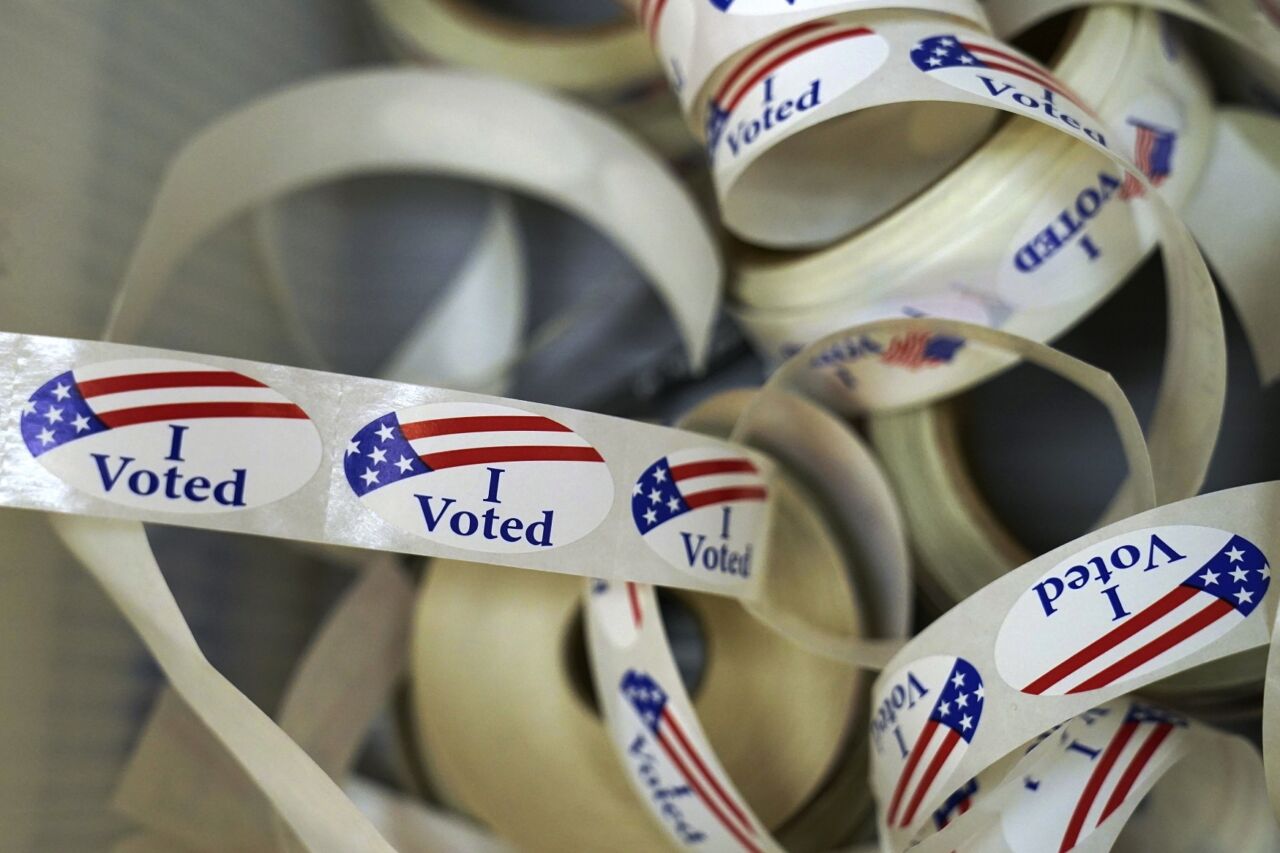Politics
Wisconsin elections officials urged to prepare for shortages, delays

MADISON, Wis. (AP) — Elections officials from across the country meeting under heightened security in swing state Wisconsin were urged Tuesday to prepare for supply chain issues that could lead to shortages in paper used for everything from ballots to “I voted” stickers for years to come.
The summer meeting of the National Association of State Election Directors brought together nearly 200 people, including elections directors from 33 states, experts in election security, interest groups that work with elections, vendors and others.
Election security experts told elections directors to be prepared for possibly years of supply chain issues affecting paper, computer hardware and other things.
The supply chain as it affects elections may not return to normal until 2026, said Ed Smith, a longtime election technology and administration veteran who chairs a federal government-industry coordinating council that works on election security issues.
The lead time to obtain election hardware is two- to three-times longer than the norm, a delay not seen since 1999 or 2000, Smith said. Costs are also higher and elections officials should be prepared for spotty and unpredictable problems due to transportation and pandemic-related shutdowns, he said.
The supply chain issues largely sparked by the COVID-19 pandemic and exacerbated by worldwide closures of factories and a drop in people in the work force have been felt by a wide array of industries. Elections officials preparing for the November midterm are also bracing for their own problems that could make it difficult to get paper needed to print ballots, informational inserts and other materials needed to run an election.
“Certainly, the paper supply has been the leanest it’s ever been,” said Jim Suver, co-chair of a federal election security working group that focuses on supply chain issues. The biggest crunch will start in September, when all states are working toward the same November election, he said.
Suver said that hoarding was not an issue.
“There’s not enough paper to hoard,” he said. “It is not happening.”
Elections officials were urged to order their supplies early and be prepared for shortages and delays.
The biggest risk is having an urgent request, like the need for a large number of reprints, 10 days or 15 days before an election, Suver said. It will be crucial for jurisdictions to be extremely careful in proofreading ballots so they don’t have to place reorders, Smith said.
The three-day meeting, which also covered issues such as insider threats to running elections and how to connect with hard-to-reach communities, comes as elections officials are facing increasing threats amid false claims by former President Donald Trump and his supporters that the 2020 election was stolen.
Amy Cohen, executive director of NASED, cautioned meeting attendees to wear their name tags when at the event so that security could see they belong there, but to take them off when out and about in the city.
“Don’t advertise who you are and exactly why you’re here,” she said.
Cohen said meeting organizers coordinated with federal, state and local law enforcement for the event. The group was not live tweeting or livestreaming the event, but there was no prohibition on attendees posting about it on social media.
“Please do be thoughtful about what you post and remember that some of the people in this room are dealing with serious security concerns and we need to be respectful to keep everyone safe,” Cohen said.

